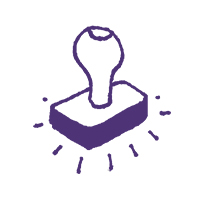Required Training for this Role
In order to be a qualified cognitive behavioural therapist there are currently two nationally funded training options/roles:
Adult CBT
To work as an adult cognitive behavioural therapist (high intensity CBT) in NHS Talking Therapy services, you will need to complete a High Intensity IAPT post graduate diploma training course that is commissioned by National Health Service England (NHSE).
Child and Adolescent CBT
To work as a CYP (children and young people) cognitive behavioural therapist, you will need to complete a CYP NHS Talking Therapy post graduate diploma training course that is also commissioned by NHSE.
Training courses are offered by a number of universities and training providers and course titles may vary. They typically consist of approximately 64 days of training distributed over an academic year, up to 12 months in duration. During training, you will be employed by a local CYP mental health organisation or an adult NHS Talking Therapy service and spend the majority of your time in the service working with CYP or adults as part of your supervised practice.











